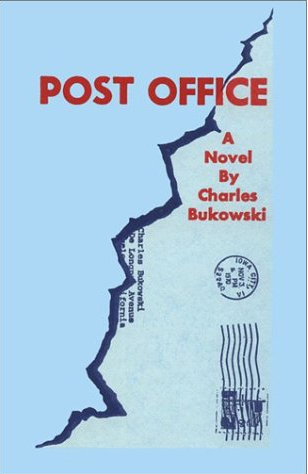Charles Bukowski was a lowbrow writer. On the one hand, some can certainly relate to his pessimistic and unpretentious philosophies of life, while others surely look upon him with disdain. The thing is, he probably would not have cared either way. Perhaps he would have even relished in the thought that someone looked upon him with disdain, as this was often the case in his writing career. Frequently, he read his poetry in various settings (frequently college campuses), had too much to drink, and then arguments with those attending often ensued or the reading quickly devolved into chaos. A long time alcoholic, who for years lived on skid row in L.A., Post Office recounts his years with the agency, first as a substitute mail carrier, then after a gap in service, a full-time postal employee. Overall, Bukowski worked for the Postal Service for 14 years. The main character in Post Office, based on Bukowski himself, is Henry Chinaski, who appears in many of Bukowski’s novels. Think of Chinaski as synonymous with Bukowski. Post Office details the personal life of Chinaski, packed with heavy drinking and subsequent hangovers, gambling, and an overview of what working for the Post Office was like in the 50’s and 60’s in L.A. I imagine some parts are the same today, others much different. Bukowski has a way of telling a story in a direct and uncensored manner that is not only appealing but also refreshing for the lowbrow reader. This particular story has a second anti-hero, namely Chinaski’s postal supervisor, Johnstone. The interaction between Chinaski and Johnstone, aka “The Stone” provide comic relief in a sadistic sort of way. Here’s a taste of what to expect:
“The post office, or any world of work, is only one institutionalized system of control that is designed to beat people, to condition them into accepting that humiliation and failure is the norm. Those who do not rebel against this lose any ability to think for themselves. The workers are robbed of power whilst the bosses have only a small amount of it and can only use it arbitrarily, which is to say, pointlessly.”
–Charles Bukowski, Post Office
Bukowski, Charles. Post Office. Black Sparrow Press. 1971.


